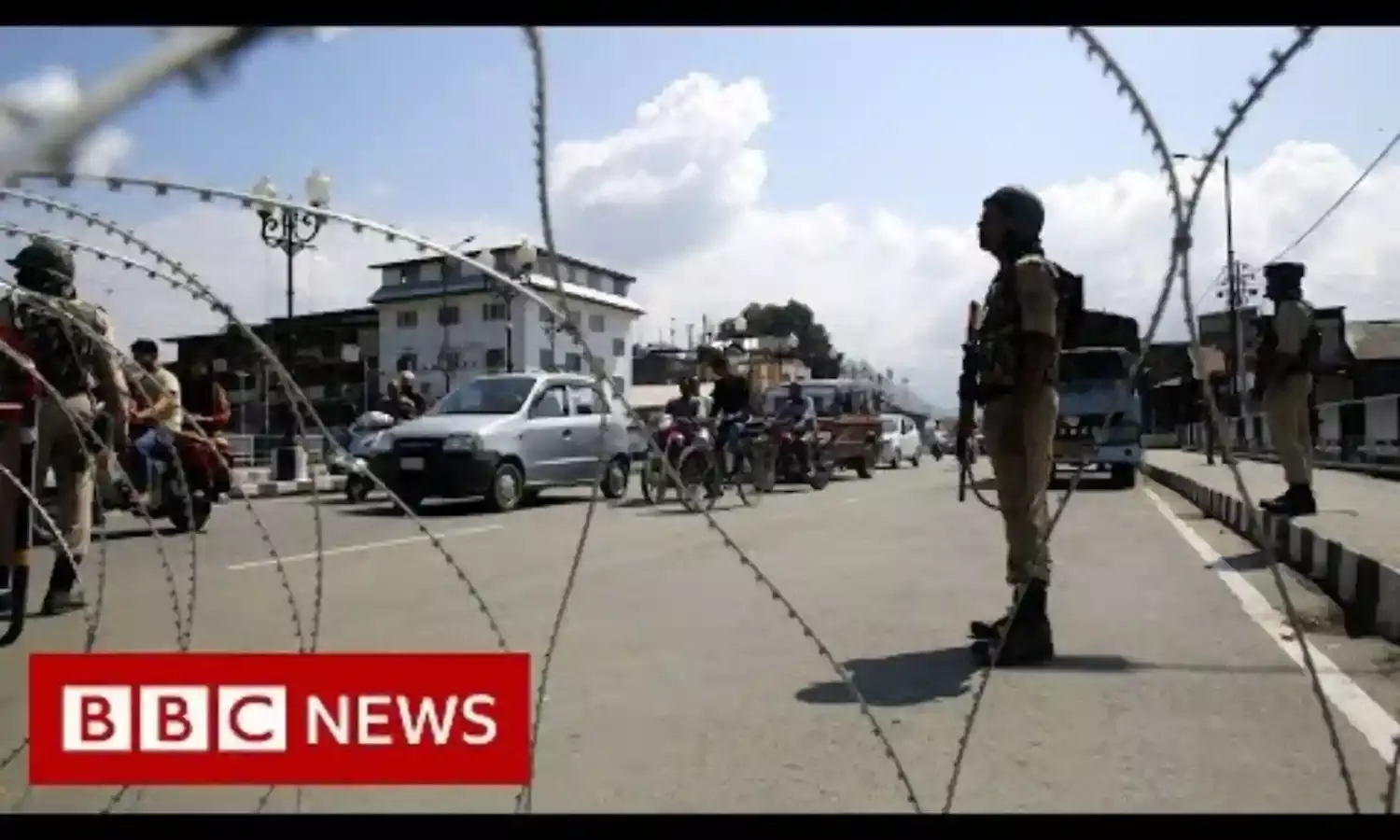Pounded by Trolls The BBC Stands Firm On Kashmir Coverage
Right-wing trolls parallel Kashmir with Northern Ireland

NEW DELHI: The British Broadcasting Corporation put out a statement Sunday refuting the claims of the Indian government and assorted trolls that it had misrepresented recent protests in Kashmir.
A video published by the publicly owned broadcaster showed thousands of people taking to the streets in Soura, Srinagar August 9, in protest against the removal of Kashmir’s statehood and constitutional status by decree.
The video caption reads: “The BBC witnessed the police opening fire and using tear gas to disperse the crowd. Despite that, the Indian government has said the protest never took place.”
The BBC’s statement says it “stands by its journalism and we strongly refute any claims that we have misrepresented events in Kashmir. We are covering the situation impartially and accurately.
“Like other broadcasters we are currently operating under severe restrictions in Kashmir but we will continue to report what is happening.”
Since Saturday the broadcaster and several politicians and journalists from outside India have drawn flak over their comments and coverage of events in Kashmir.
According to reports the Indian government has asked Al Jazeera and the BBC about their photos and videos of the large-scale protests in Srinagar on Friday. According to reports, protests also took place on Sunday August 11 with women participating in number.
The government claims that the videos broadcast by the international media are fabricated, and has asked them to prove the footage is genuine.
Two days ago BBC South Asia bureau chief Nicola Careem tweeted, “Just to clarify this was shot yesterday at 1530 after Friday prayers in Soura in Srinagar in Indian administered Kashmir. We will be releasing the raw footage soon.”
Union Home Ministry officials stated they were awaiting a response from the foreign media outlets, which they say have not so far published the unedited footage.
“All of them are referring to BBC Urdu videos and so far unable to produce the raw footage,” an unnamed Union Home Ministry official reportedly stated.
He or she added that Ministry of External Affairs officials have also been asked to ensure that “unverified” videos from the Valley are not uploaded by any foreign media outlets.
Since Saturday, trolls on Twitter took to calling the BBC’s coverage “fake news” in a phrase popularised by US President Donald Trump, and asking the broadcaster to look to Northern Ireland.
This is not the first time the BBC has drawn criticism or worse from the Indian government. In June 1970, BBC Two broadcast two documentary films by legendary French filmmaker Louis Malle, Calcutta and Phantom India, in the UK.
These sketches of everyday life in India stirred outrage among the UK Indian diaspora. Accusations that the BBC was showing a “distorted image” of India reached the government here. As a result, BBC staff were expelled from India for two years.
The declaration of a state of emergency by Prime Minister Indira Gandhi in 1975 introduced a set of draconian and repressive regulations which limited press freedom. This led to the second expulsion of the BBC from India.
For now, government officials and trolls largely supporting the ruling party and the Indian government's decisions on Kashmir, seem to have confined themselves to contradicting or denying international press coverage of events in Kashmir. Most local journalists remain out of contact and most Kashmiri papers are shut down or tightly restricted.



